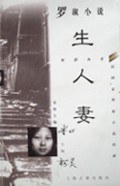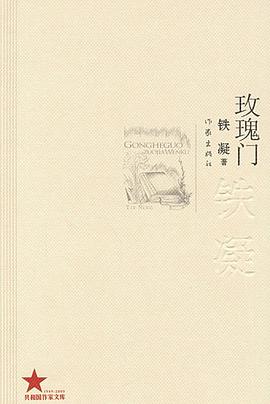Dying for an iPhone
内容简介
A harrowing look lives and struggles of a new generation of Chinese workers confronting the Apple-Foxconn empire and the Chinese state.
Suicides, excessive overtime, and hostility and violence on the factory floor in China. Drawing on vivid testimonies from rural migrant workers, student interns, managers and trade union staff, Dying for an iPhone is a devastating expose of two of the world’s most powerful companies: Foxconn and Apple.
As the leading manufacturer of iPhones, iPads, and Kindles, and employing one million workers in China alone, Taiwanese-invested Foxconn’s drive to dominate global electronics manufacturing has aligned perfectly with China’s goal of becoming the world leader in technology. This book reveals the human cost of that ambition and what our demands for the newest and best technology means for workers.
Foxconn workers have repeatedly demonstrated their power to strike at key nodes of transnational production, challenge management and the Chinese state, and confront global tech behemoths. Dying for an iPhone allows us to assess the impact of global capitalism’s deepening crisis on workers.’
......(更多)
作者简介
Jenny Chan (Ph.D. 2014) is an Assistant Professor of Sociology and China Studies in the Department of Applied Social Sciences at the Hong Kong Polytechnic University. She is also a Member of the Sub-committee on “Community, Organization and Globalisation” Subjects (a Sub-committee of the Academic Planning and Regulations Committee), and a Management Committee Member of the China Research and Development Network, the Hong Kong Polytechnic University. Currently, Jenny is the Vice President of Communications of the International Sociological Association’s Research Committee on Labor Movements (2018-2022), an Advisory Board Member of the Global Labour Journal (2019-), an Editorial Board Member of Rural China: An International Journal of History and Social Science (2019-), and a Contributing Editor of The Asia-Pacific Journal (2015-). Her first book is Dying for an iPhone: Apple, Foxconn and the Lives of China’s Workers (co-authored with Mark Selden and Pun Ngai). She co-edited a 2019 special issue of Critical Sociology entitled, “Precarization and Labor Resistance” (with Chris Rhomberg and Manjusha Nair).
Pun Ngai is Professor of Sociology at the University of Hong Kong. She is coeditor of Remaking Citizenship in Hong Kong: Community, Nation, and the Global City and the founder and chair of the Chinese Working Women Network, a grassroots organization of migrant women factory workers in China.
Mark Selden is a Senior Research Associate in the East Asia Program, Cornell University and Professor Emeritus of Sociology and History, State University of New York at Binghamton. He is the editor of The Asia-Pacific Journal: Japan Focus . His research encompasses the modern and contemporary geopolitics, political economy and history of China, Japan and the Asia Pacific, ranging broadly across themes of war and revolution, inequality, development, environment, precarity, social movements, regional and world social change, and historical memory. In 1968 he was a founding member of The Committee of Concerned Asian Scholars and for more than thirty years he was an editor of The Bulletin of Concerned Asian Scholars and subsequently of Critical Asian Studies. He is the author or editor of more than thirty books and editor of book series at Rowman & Littlefield, Routledge, M.E. Sharpe, and Lexington Publishers. His books have appeared in translation in Japanese, Chinese, Korean, Italian, Spanish and Polish.
......(更多)
目录
Table of contents :
Title
Copyright
Contents
List of Tables and Figures
Preface
1 A Suicide Survivor
2 Foxconn: The World’s Largest Electronics Manufacturer
3 Apple Meets Foxconn
4 Managing Foxconn
5 Voices of Student Interns
6 Fire and Brimstone
7 Wandering the City
8 Chasing Dreams
9 Confronting Environmental Crisis
10 Dead Man Walking
11 Strikes and Protests
12 Apple, Foxconn, and the Lives of China’s Workers
Epilogue
Acknowledgments
Appendix 1: Our Book Website
Appendix 2: Suicides and Attempted Suicides at Foxconn in China, 2010
Appendix 3: Fieldwork in China
Appendix 4: Foxconn Facilities Around the World
Notes
Selected Bibliography
Index
......(更多)
读书文摘
......(更多)






